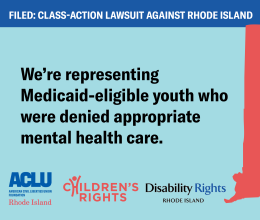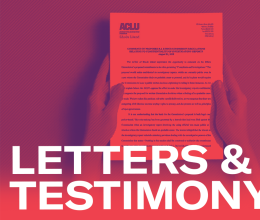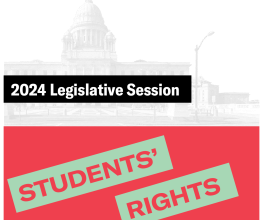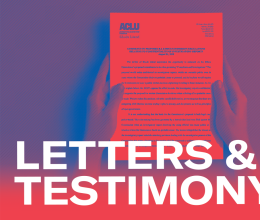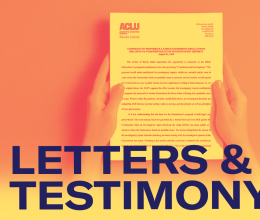Finding that there would be “substantial and irreparable harm” if members of the public were prohibited from attending, R.I. Superior Court Judge Daniel Procaccini today issued an order barring the R.I. Board of Education from meeting in private at a retreat later this month to hear from invited “experts” on the issue of its “high stakes testing” requirement for high school seniors. In issuing a preliminary injunction against the planned private discussion of the issue, the judge agreed with the ACLU that allowing such a discussion to take place in private would significantly undermine the open meetings law’s purpose.
In questioning the Board’s plans to discuss the issue “in a closed meeting outside all public view,” the ACLU’s lawsuit, filed last Friday, cited the “extraordinary public attention” the high stakes testing issue has received in recent months. The Board of Education has been in existence for over seven months, and while members of the public have insistently called for an examination of the testing issue throughout that period, the scheduled retreat is the first time it has been placed on the Board’s agenda.
As a result of the high stakes testing requirement, which is scheduled to take effect in 2014, approximately 4,000 students face the risk of not graduating next year because of their scores on the current test, known as the NECAP.
ACLU of RI executive director Steven Brown said today: “We are extremely pleased with the judge’s ruling. This is an important victory for the public and for transparency in government.” The judge issued his order after hearing oral argument from both sides this afternoon,
The lawsuit was filed on behalf of three plaintiffs: Christine Egan, the parent of an East Greenwich high school student; Edward Benson, a member of the Coalition to Defend Public Education, a group which has been lobbying against the testing requirement; and Rick Richards, a former employee in the Department of Education’s office of testing and outspoken critic of the test. The case was handled by ACLU volunteer attorneys Miriam Weizenbaum and Amato DeLuca.
Access more information about this lawsuit and read more about the ACLU's work regarding high-stakes testing.


